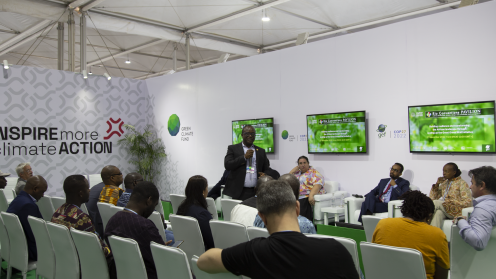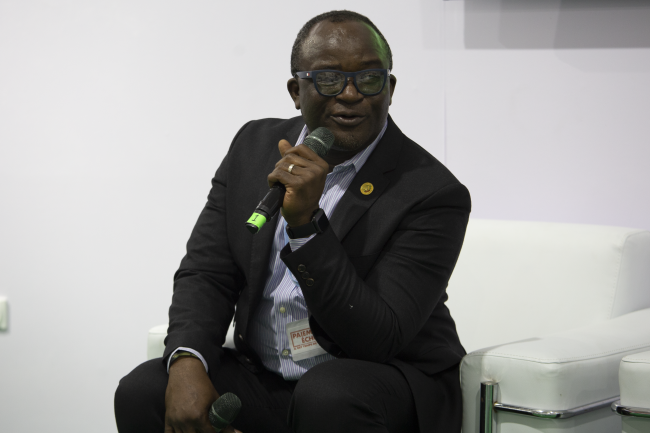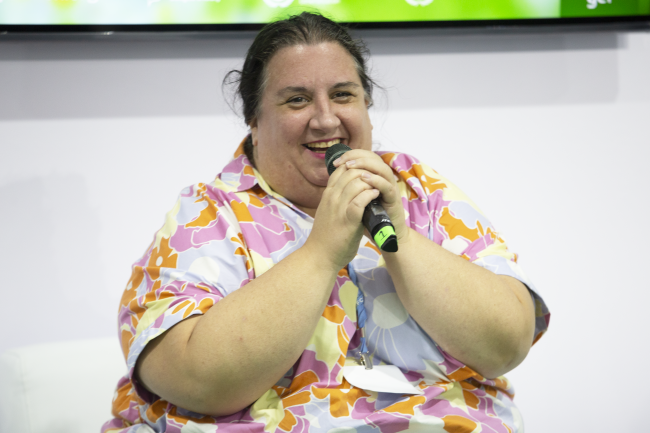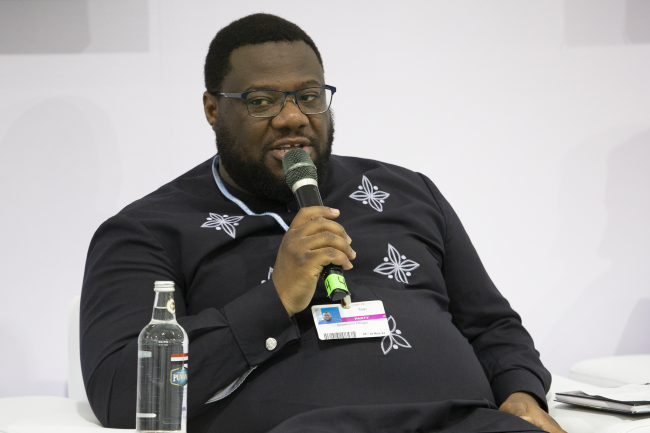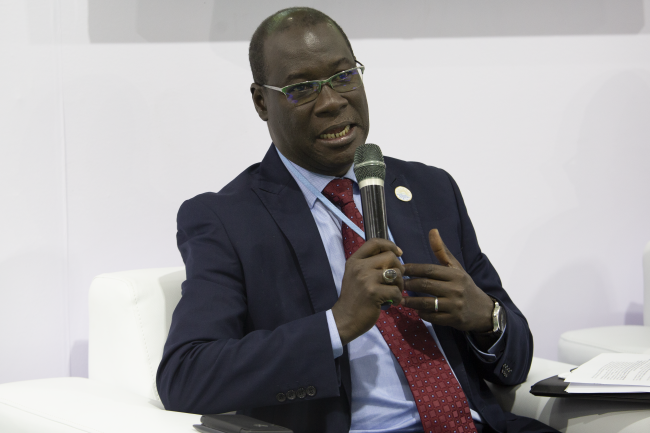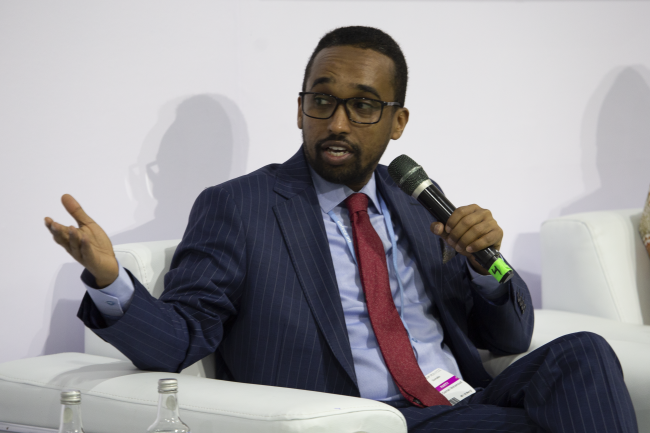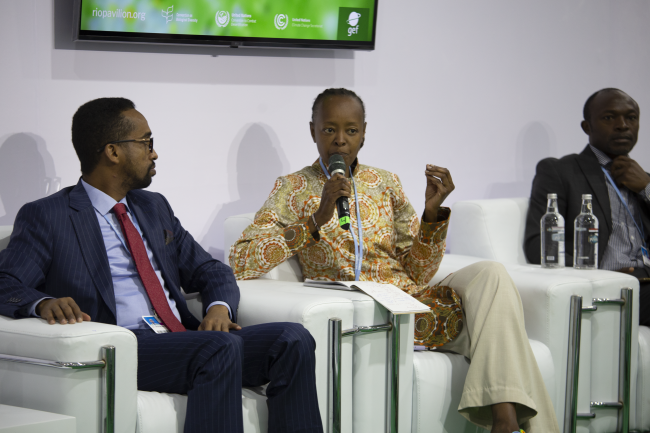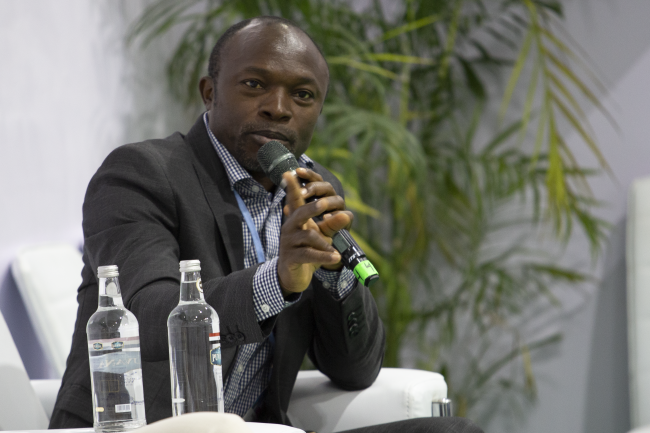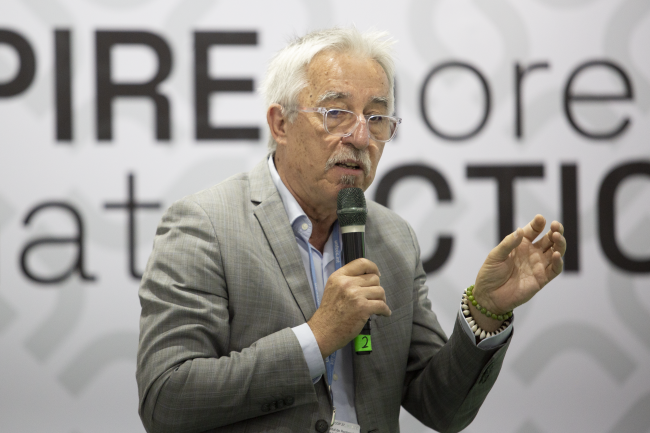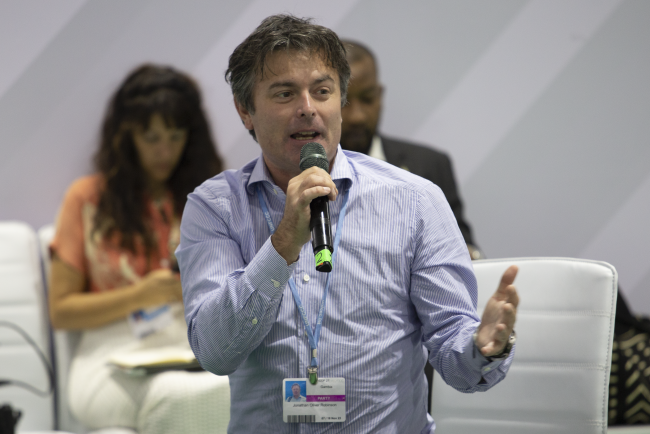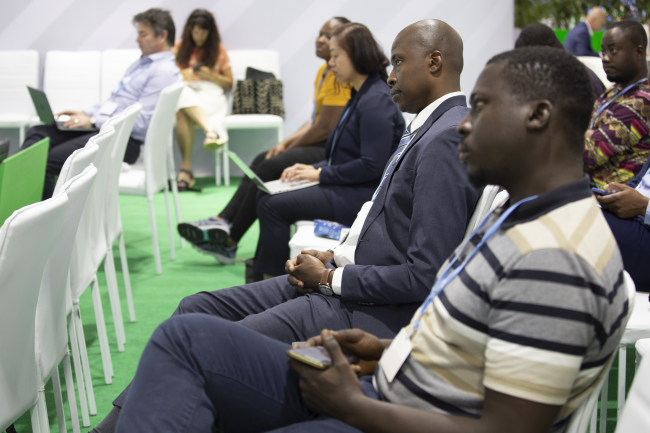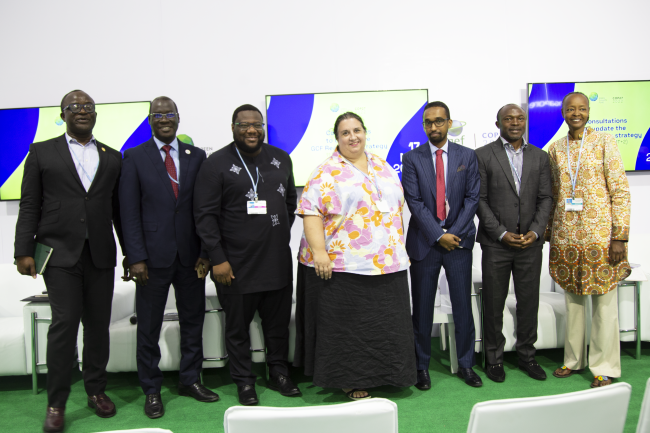Building Resilience and Transforming the African Landscape Through Scaling up the Great Green Wall Initiative
The Great Green Wall Initiative (GGWI), launched in 2007, was established to restore Africa’s degraded landscapes, transform livelihoods, and build the adaptive capacity of African countries. However, what started as a reforestation initiative in Africa has grown into an ambitious plan for economic, ecological, and social development. This event highlighted the commitment of African countries to galvanize climate action by mobilizing political support and partnerships, in order to upscale lessons learned from the last 15 years of the GGWI’s implementation in Africa.
Elvis Paul Tangem, GGWI Coordinator, AUC, moderated the event. Louise Baker, Managing Director, Global Mechanism, UNCCD, stated that the GGWI is a “rich tapestry of economic opportunities” for the African continent because it focuses on building a relationship with the natural world to support a solid economic future. She also discussed the GGWI Accelerator, which is designed to support African institutions to quicken their implementation of the GGWI. Given progress made, Baker said the GGWI has the ability to transform the African continent.
Komlanvi Moglo, WADB, discussed the Bank’s work in mobilizing resources and investments for green projects and developing new strategies to implement them. He also noted that the WADB has never worked in silos as the Bank, he continued, works to develop comprehensive partnerships with countries in delivering their national priorities.
Arona Soumare, AfDB, emphasized that their Member States should prioritise GGWI implementation by ensuring it is aligned with local and national plans, and by taking ownership of GGWI projects. He highlighted the importance of scaling up financing by leveraging bank funding and working with partners to build bankable projects. More can be done to successfully implement GGWI projects, Soumare pointed out, if partners work together to implement common strategies at the national level.
Mohamed Osman, Office of the President, Somalia, stated that Somalia is joining the GGWI and has made progress in ensuring its implementation through: aligning its national development plans with the Paris Agreement and Sustainable Development Goals; developing greening initiatives and a climate agenda; establishing a Ministry for Environment and Climate Change; and implementing an integrated financial framework, which ensures that budgets speak to local priorities.
Helen Gichenje, Commonwealth Secretariat, discussed the organization’s partnership with the UNCCD and the New Partnership for Africa’s Development to implement GGWI in Africa with the goal to ensure collaboration on sustainable water and land management initiatives. She highlighted the adoption of the Living Lands Charter: A Commonwealth Call to Action on Living Lands, which focuses on safeguarding global land resources while taking coordinated action on climate change, biodiversity, and sustainable land management. Gichenje also discussed the Commonwealth’s work on deploying advisers to countries such as Somalia to address land degradation and develop bankable projects.
Tabi Joda, Executive Director, GreenAid, and GGWI Ambassador, discussed the need for civil society organizations (CSOs) to move quickly to leverage opportunities that the AUC has provided and establish better coordination at all levels. Sometimes leadership within CSOs is lacking, preventing them from coordinating with partner entities, he admitted, but stronger CSO involvement is needed. CSOs do not need “big money,” he stressed, but rather enough support to work directly “on the frontline,” which is sufficient to create significant impact and transform livelihoods.
Gora Diop, Director-General, GGWI Senegal, emphasized the need to work together in implementing GGWI, stating “the time for silos systems is over.” He pointed out that now is the time for action since funding is available and there is a clear common vision, noting that GGWI has moved from being the “white elephant” in the room to becoming one of the biggest projects in Africa.
In closing the event, speakers shared their key takeaways from the session:
- Soumare emphasized the power of collective action and having strong development partners;
- Moglo noted that WADB is ready to work together with partners on various innovative opportunities on the continent;
- Baker pointed out that “with the right vision and right narrative,” building Africa’s resilience and transforming its landscapes can be done;
- Osman reiterated Somalia’s interest in joining GGWI and called for its partners to provide technical support and access to investments;
- Joda stated that “reinvention of the wheel” is unnecessary, and what is needed instead is scaling up existing projects and harmonizing GGWI strategies to ensure successful implementation; and
- Gichenje emphasized the need for an integrated approach to GGWI implementation, and applauded the recent announcement of the Climate Investment Funds’ first round of funding for the Zambezi region.
Organizer: Rio Conventions Pavilion
Contact: David Ainsworth | david.ainsworth@un.org
For more information: http://www.riopavilion.org/
To receive free coverage of global environmental events delivered to your inbox, subscribe to the ENB Update newsletter.
